In childhood, the theme tune to The Box of Delights was the sound of Christmas. The melody was ‘The First Nowell’ but that wasn’t what cast the spell. It was the way the harp glinted and pealed, and the eerie wisp of the ‘Coventry Carol’ that drifted through on muted violins: a masterclass in orchestration for a BBC teatime audience. After inquiries at Circle Records in Liverpool (this was pre-Amazon), my father established its identity: the Carol Symphony, by a composer with the pleasingly Edwardian name of Victor Hely-Hutchinson.
And that was that, for me anyway, until three decades later, rifling through the archive of the City of Birmingham Symphony Orchestra, I noticed the initials ‘VHH’ on files from the 1940s. It turned out that Hely-Hutchinson had come to Birmingham in 1933 to work for the BBC and when, during the war, the City of Birmingham Orchestra’s (‘symphony’ came later) conductor Leslie Heward succumbed to tuberculosis, he’d practically rescued the whole outfit. He booked musicians, planned rehearsals and conducted concerts, all unpaid. He also commanded the university cadet force, performed all 32 Beethoven piano sonatas from memory, and served nightly as an ARP warden. When he died of pneumonia in 1947, obituaries in Birmingham newspapers promised that he would always be remembered.
Until, of course, he wasn’t. Anyone who’s poked around in an archive knows how personalities, lives and whole cultures can disappear into manila folders in climate-controlled vaults. Look at an orchestra dressed in tailcoats and evening gowns, and you assume you’re seeing a 19th-century tradition. Not so: the CBSO only adopted white tie and tails in 1955. ‘Dear me, what next?’ mocked John Waterhouse of the Birmingham Post. ‘Blue Hungarian outfits for Viennese concerts? Jolly false noses for the Saturday pops? Tiny cupid wings for “Music You Love”?’
The CBSO’s conductor in the late 1940s, the former racing driver George ‘Whacker’ Weldon, got through so many cigarettes in rehearsal that he used a chamber pot as an ashtray. In the 1960s, Hugo Rignold would rehearse with his baton in one hand and a fag in the other, and percussionist Maggie Cotton, in her memoir Wrong Sex, Wrong Instrument, tells how the horn players would stash still-burning cigarettes in the crooks of their instruments. The tobacco fug masked an even riper stench: the rehearsal hall, Digbeth Institute, doubled as a boxing ring. ‘It smelled of beer, sweat and jockstraps,’ a retired violinist told me. Imagine rehearsing The Walk to the Paradise Garden in that.
Orchestras have changed more than we might imagine, and received wisdom is an unreliable guide. ‘In 1920, the notion of musicians receiving a “handout” from the taxpayer would have struck most people as either peculiar or outrageous,’ writes Richard Morrison in his history of the London Symphony Orchestra. In London, perhaps. In Birmingham a consensus had already emerged that public funding was simply common sense. True, there were jokes about the ‘municipal orchestra’ (a council publication in 1928 listed civic priorities as ‘Cemeteries; Sewage disposal; Mental defectives; City of Birmingham Orchestra’). But when the CBSO celebrates its centenary in 2020, it will have received 100 unbroken years of civic subsidy.
Meanwhile Wikipedia states, with the confidence of the crowdsourced, that ‘Women were non-existent in most major symphony orchestras up until the 1960s’. Tell them in Brum, where the CBSO employed female musicians from its first concert in 1920, with women making up nearly a quarter of the orchestra when it went full-time in 1944. (Today it’s effectively 50:50.) By the end of 1921 women sat on the board too. Lady Brooks, a former mayoress, chaired an all-female subcommittee devoted to ‘propaganda’ — as overworked a marketing cliché then as ‘viral’ is now. (When the University of Birmingham gave Adrian Boult an honorary degree in 1930, the dons acclaimed him as a ‘musical Mussolini of the British people’. Not all compliments age well.)
And in an age of anti-Brexit sopranos and Corbynista opera critics, it’s salutary to notice how musical politics have shifted. Today, the Musicians’ Union trumpets the importance of free movement. In 1947, it picketed a tour by the Vienna State Opera and lobbied for ‘alien musicians’ to be banned from working in the UK. When the Holocaust survivor Rudolf Schwarz was appointed conductor of the Bournemouth Municipal Orchestra, the Union campaigned to have him fired.
Schwarz moved to Birmingham in 1951, where MU xenophobia found an enthusiastic echo from the CBSO’s former cor anglais player, the composer Ruth Gipps. ‘The job was given without a bat of an eyelid to a foreigner,’ she grumbled, years later. Gipps is another outsize personality from the CBSO’s archives: undoubtedly the victim of various shades of prejudice, and lately rediscovered. But anyone planning to co-opt her, post hoc, as a progressive martyr should read Jill Halstead’s biography first. Gipps blamed the neglect of her music on a postwar conspiracy by supporters of Britten and Tippett: ‘homosexual pacifists who had seized power when every decent man was serving his country.’
Careful what you wish for, then. History’s a cussed, intractable thing, and when you liberate its inhabitants from the archives they have an embarrassing habit of speaking their minds. But Gipps’s music has its own voice, and two of her symphonies have recently been recorded. If you’re after a stocking filler for an open-minded music-lover — and if you can accept that the past is a very foreign country indeed — well, you know what to do.
Got something to add? Join the discussion and comment below.
Get 10 issues for just $10
Subscribe to The Spectator Australia today for the next 10 magazine issues, plus full online access, for just $10.
You might disagree with half of it, but you’ll enjoy reading all of it. Try your first month for free, then just $2 a week for the remainder of your first year.


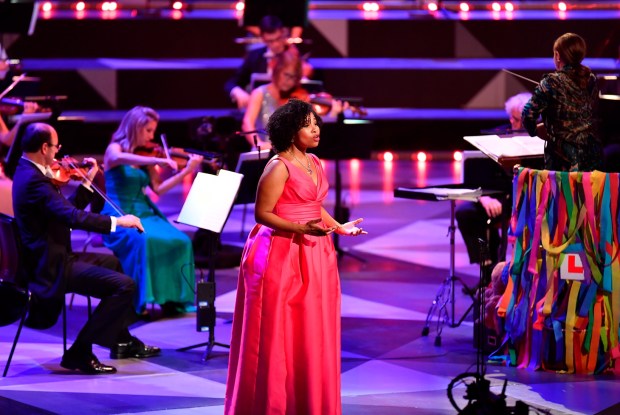
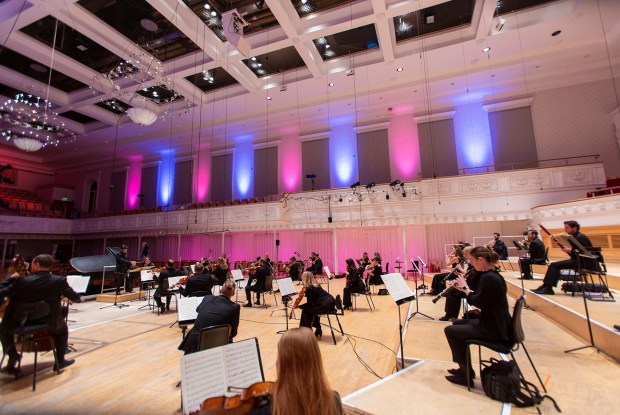
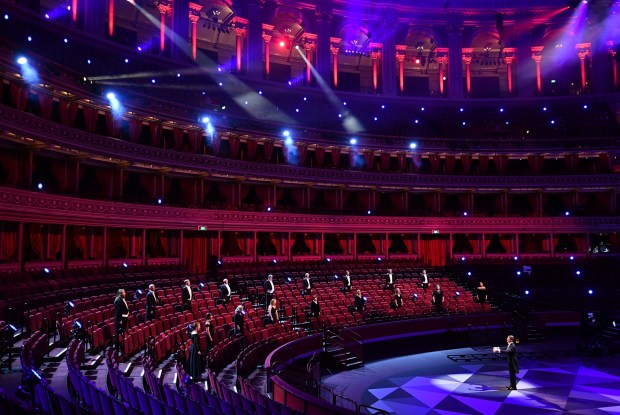
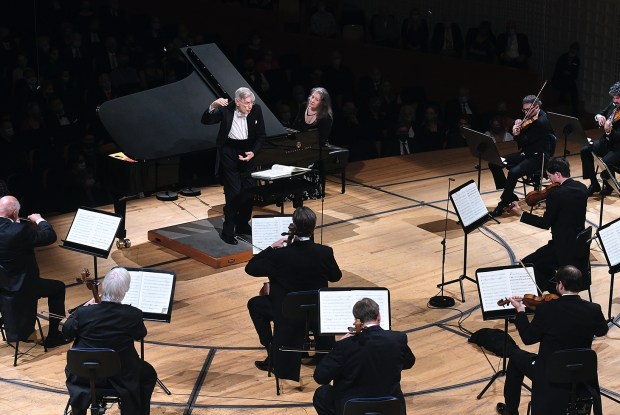
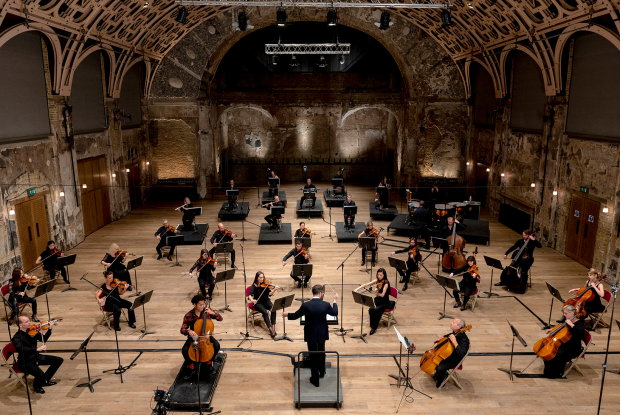
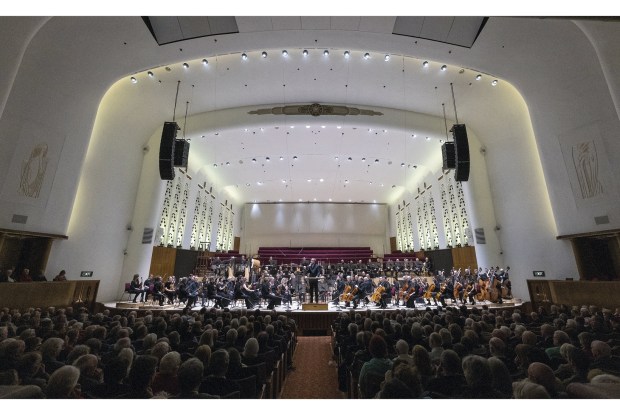






Comments
Don't miss out
Join the conversation with other Spectator Australia readers. Subscribe to leave a comment.
SUBSCRIBEAlready a subscriber? Log in